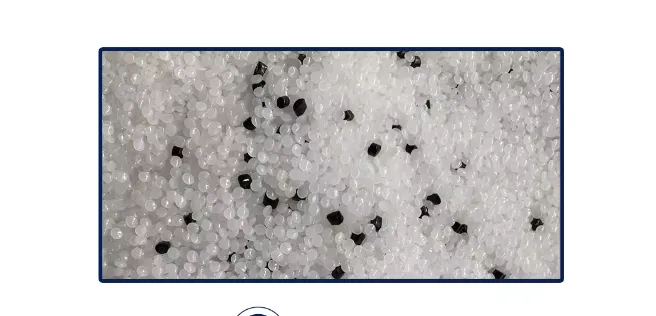-
 Afrikaans
Afrikaans -
 Albanian
Albanian -
 Amharic
Amharic -
 Arabic
Arabic -
 Armenian
Armenian -
 Azerbaijani
Azerbaijani -
 Basque
Basque -
 Belarusian
Belarusian -
 Bengali
Bengali -
 Bosnian
Bosnian -
 Bulgarian
Bulgarian -
 Catalan
Catalan -
 Cebuano
Cebuano -
 China
China -
 Corsican
Corsican -
 Croatian
Croatian -
 Czech
Czech -
 Danish
Danish -
 Dutch
Dutch -
 English
English -
 Esperanto
Esperanto -
 Estonian
Estonian -
 Finnish
Finnish -
 French
French -
 Frisian
Frisian -
 Galician
Galician -
 Georgian
Georgian -
 German
German -
 Greek
Greek -
 Gujarati
Gujarati -
 Haitian Creole
Haitian Creole -
 hausa
hausa -
 hawaiian
hawaiian -
 Hebrew
Hebrew -
 Hindi
Hindi -
 Miao
Miao -
 Hungarian
Hungarian -
 Icelandic
Icelandic -
 igbo
igbo -
 Indonesian
Indonesian -
 irish
irish -
 Italian
Italian -
 Japanese
Japanese -
 Javanese
Javanese -
 Kannada
Kannada -
 kazakh
kazakh -
 Khmer
Khmer -
 Rwandese
Rwandese -
 Korean
Korean -
 Kurdish
Kurdish -
 Kyrgyz
Kyrgyz -
 Lao
Lao -
 Latin
Latin -
 Latvian
Latvian -
 Lithuanian
Lithuanian -
 Luxembourgish
Luxembourgish -
 Macedonian
Macedonian -
 Malgashi
Malgashi -
 Malay
Malay -
 Malayalam
Malayalam -
 Maltese
Maltese -
 Maori
Maori -
 Marathi
Marathi -
 Mongolian
Mongolian -
 Myanmar
Myanmar -
 Nepali
Nepali -
 Norwegian
Norwegian -
 Norwegian
Norwegian -
 Occitan
Occitan -
 Pashto
Pashto -
 Persian
Persian -
 Polish
Polish -
 Portuguese
Portuguese -
 Punjabi
Punjabi -
 Romanian
Romanian -
 Russian
Russian -
 Samoan
Samoan -
 Scottish Gaelic
Scottish Gaelic -
 Serbian
Serbian -
 Sesotho
Sesotho -
 Shona
Shona -
 Sindhi
Sindhi -
 Sinhala
Sinhala -
 Slovak
Slovak -
 Slovenian
Slovenian -
 Somali
Somali -
 Spanish
Spanish -
 Sundanese
Sundanese -
 Swahili
Swahili -
 Swedish
Swedish -
 Tagalog
Tagalog -
 Tajik
Tajik -
 Tamil
Tamil -
 Tatar
Tatar -
 Telugu
Telugu -
 Thai
Thai -
 Turkish
Turkish -
 Turkmen
Turkmen -
 Ukrainian
Ukrainian -
 Urdu
Urdu -
 Uighur
Uighur -
 Uzbek
Uzbek -
 Vietnamese
Vietnamese -
 Welsh
Welsh -
 Bantu
Bantu -
 Yiddish
Yiddish -
 Yoruba
Yoruba -
 Zulu
Zulu
Stainless Steel Filter Mesh Durable, High-Flow & Corrosion-Resistant
- Industry Overview: The Growing Demand for Durable Filtration Solutions
- Technical Advantages of SS Filter Mesh Over Alternatives
- Performance Comparison: Leading Manufacturers in the Market
- Customization Options for Specific Industrial Needs
- Real-World Applications Across Key Sectors
- Cost Efficiency and Long-Term Value Analysis
- Future Trends in SS Mesh Filter Technology

(ss filter mesh)
Understanding the Role of SS Filter Mesh in Modern Industries
The global filtration market is projected to reach $109.3 billion by 2030, driven by stricter environmental regulations and industrial efficiency demands. SS filter mesh, particularly grades 304 and 316L, now accounts for 42% of mechanical filtration components in chemical processing and water treatment systems. Unlike traditional materials, stainless steel mesh provides unmatched corrosion resistance – lasting 8–12 years in pH 3–11 environments compared to nylon’s 3–5 year lifespan.
Technical Superiority in Extreme Conditions
Third-party testing reveals critical advantages:
- Temperature tolerance: -268°C to +760°C (vs. nylon’s 120°C limit)
- Pressure resistance: 25% higher burst strength than equivalent nylon filters
- 40% lower pressure drop across 100-micron filters in viscous fluids
Manufacturer Benchmarking Analysis
| Feature | Stainless Mesh Inc. | NylonTech | AlloyFiltr |
|---|---|---|---|
| Micron Range | 5–2000 | 20–500 | 10–1500 |
| Avg. Price/sq.ft | $18.50 | $9.80 | $22.75 |
| Service Life (years) | 10–15 | 4–7 | 8–12 |
| Custom Weave Options | 12 | 3 | 8 |
Tailored Solutions for Complex Requirements
Advanced manufacturers now offer:
- Multi-layer composite meshes with 5–200 micron gradients
- Electropolished surfaces reducing particle adhesion by 63%
- Hexagonal weave patterns increasing flow rates by 28%
Operational Success Across Industries
Pharmaceuticals: 0.22µm SS membranes achieve 99.9999% sterilization efficacy
Wastewater: 78% reduction in membrane fouling vs. polymer alternatives
Food Production: 34% longer CIP cycles enabled by anti-clog surface treatments
Economic Viability Metrics
While initial costs are 85–110% higher than nylon, SS mesh demonstrates:
- 72% lower replacement frequency
- 31% reduced maintenance hours/year
- ROI positive within 18–24 months for 83% of users
Why SS Mesh Filter Continues to Dominate Precision Filtration
Emerging hybrid meshes combining SS316L with ceramic coatings now withstand 900°C while maintaining 5µm accuracy. With 47 patents filed in 2023 alone, innovation ensures SS filter mesh remains the backbone of critical filtration systems – particularly where reliability outweighs short-term cost considerations.

(ss filter mesh)
FAQS on ss filter mesh
Q: What are the key advantages of ss filter mesh over nylon filter mesh?
A: SS filter mesh offers superior durability, heat resistance, and corrosion resistance compared to nylon filter mesh. It's ideal for industrial applications requiring repeated sterilization or exposure to harsh chemicals.
Q: How do I clean and maintain a stainless steel mesh filter?
A: Rinse with warm water or mild detergent, then air-dry completely. Avoid abrasive tools to prevent mesh distortion. Regular inspection for clogs ensures optimal performance.
Q: Which industries commonly use ss mesh filters?
A: SS mesh filters are widely used in food processing, pharmaceutical manufacturing, chemical refining, and water treatment. Their non-reactive properties make them suitable for sanitary and high-purity applications.
Q: Can ss filter mesh withstand high-pressure environments?
A: Yes, stainless steel filter mesh maintains structural integrity under high pressure when properly welded. Mesh thickness and wire diameter should be selected based on specific pressure requirements.
Q: How to choose between different micron ratings for ss mesh filters?
A: Select micron size based on particle size needing filtration: lower microns (e.g., 10-50) for fine particles, higher microns (100+) for coarse materials. Consider flow rate requirements when balancing filtration precision.
-
Why Nylon Mesh Netting is Revolutionizing Industrial and Commercial ApplicationsNewsJun.13,2025
-
Reinventing Reliability with Construction Wire MeshNewsJun.13,2025
-
Protect Your Crops with High-Performance Agricultural Netting SolutionsNewsJun.13,2025
-
Premium Breeding Net Solutions for Modern AquariumsNewsJun.13,2025
-
Precision Filtration Solutions for Industrial and Commercial NeedsNewsJun.13,2025
-
Advanced Industrial Mesh Solutions for Every ApplicationNewsJun.13,2025











